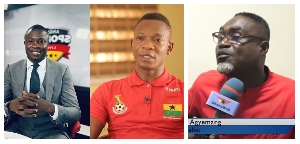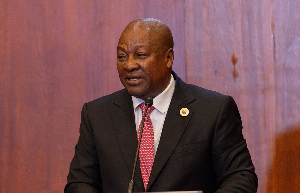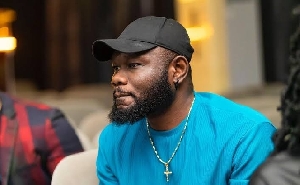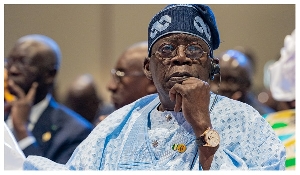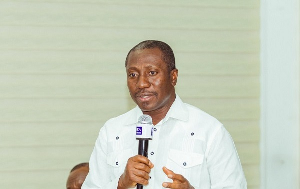Kwabena Nyamekye
Prof Opoku-Agyeman has raised a matter of considerable importance, even if she is right or wrong. The question of the use of mother tongues in early teaching has recently gained currency especially with UNESCO arguing that children learn and develop better if early instruction is in their native language.
I do not profess to know whether this is correct or not. I am assuming that native language will be used side-by-side with English. Also surely there are other variables that enable excellence such as the type of school, parent background, quality of teachers etc. Moreover there is the view that some countries have prospered because they have instructed their children in native language at school instead of foreign language. There is also the supposed link between the use of the mother tongues and economic development. Again I am not so sure about this but my argument does not focus on this issue
Using the mother tongue to teach children is a wonderful idea but I do not place my argument in its role as a tool of learning and economic development. I see the importance of the mother tongue as a means to shore up ethnic identity and to prevent the inexorable unintended destructive power of Akan. As I write, English is the official language yet Akan is the national language. More people are comfortable speaking Akan than any other language. English is a language we are compelled to use in exceptional circumstances such as brief transactions at the bank (most probably only in Accra based banks), at Kotoka Airport, government ministries etc. Outside such areas as these, we are native language speakers. On account of commercial power and numbers, we are increasingly Akan speakers. Other language speakers are in trouble as Akan migrants descend to Accra and play a role in that city and other economically powerful regions like Western and Ashanti. With this in play, any trader from any part of Ghana, or inter-city bus driver, two very important carriers of language, are increasingly compelled to learn Akan to carry out their transactions across Ghana. Add the power of the Akan-owned radio stations, the Akan musicians (gospel, rappers etc) and Kumawood and you can see the problem. If the government goes ahead with what I think is a good idea on its face there is the likelihood that out of convenience, all of us will flock to the Akan banner and before you know it other languages will vanish.
Thus what do we do to benefit from a native language policy while at the same time avoid other languages vanishing from the scene? There are about 80 numbers of languages in Ghana with state support being given to 11 of them. For reasons of economy, I am assuming that these will probably be the language of instruction in schools but this is discriminatory against the remaining 70 or so languages.
To avoid this dilemma I suggest government insists that in areas where the non-supported languages are used, schools should pick the local language and one of the state-supported languages as tools for instruction. Private schools should not be exempt from this. What the state can do here is to provide financial support to enable recruitment of teachers to instruct in local languages
Thus a private nursery school (run by an NGO or a religious body) in the Northern region where the Nawuri language is spoken currently by about 19,000 people should receive support to recruit a teacher in Dagbani, spoken by almost 1 million people and Nawuri as well.
Taking the issue further I don’t think we should end local language policy here. There are some public interest positions where local languages are vital for communication. Living in Accra and a product of Holy Child and Legon one tends to assume all Ghanaians are fluent in English. This is not the case and probably never will be. Thus there are some occupations where local language is vital for communicating effectively with clients. Doctors, nurses, pharmacists, lawyers, architects and teachers are in this category. This will then ensure that the local language revival policy does not end at primary level or wherever. To secure a license to practice any of these professions will require local language fluency. Thus when building a house for Mr Amega in Denu or when defending Boadi in Ejisu, the architect or lawyer can communicate effectively with the client.
The grumbling about the Akan language domination can easily get louder and louder if something is not done. Insisting on the use of local language in nursery and primary schools as a medium of instruction beside English (for instance in history, religion, geography) will go a long way to attaining whatever knowledge and developmental goals, while at the same time protecting other languages that are threatened by Akan.
Opinions of Monday, 19 October 2015
Columnist: Nyamekye, Kwabena




